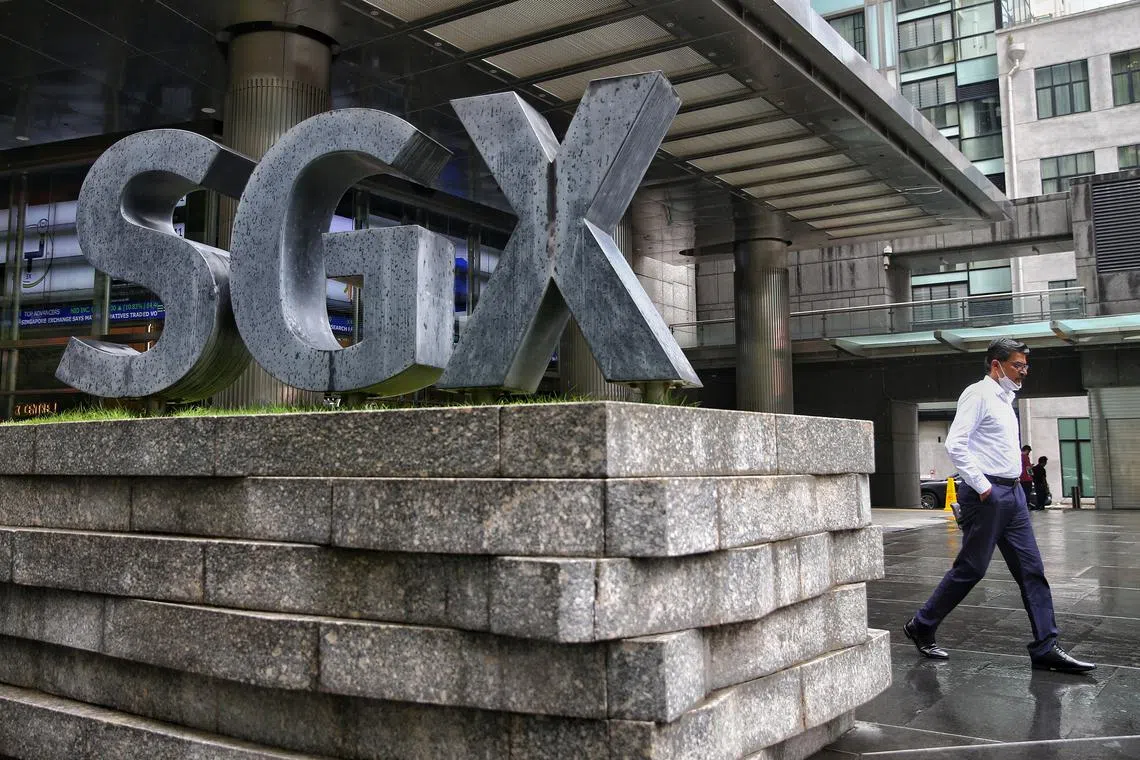STI hits 52-week high on strong market sentiment; Singtel gains 3.2%
Sign up now: Get ST's newsletters delivered to your inbox

The Dow Jones Industrial Average, S&P 500 and Nasdaq Composite indexes had all gained 1.2 per cent in Sept 9 trading.
PHOTO: ST FILE
Joan Ng
Follow topic:
SINGAPORE - The Straits Times Index (STI) rode a wave of stock market optimism to hit a 52-week intraday high of 3,523.47 points on Sept 10. It also achieved its highest close in 52 weeks, at 3,512.67, up 0.5 per cent or 16.14 points. Advancers led decliners 302 to 230.
Singapore’s gains broadly tracked improvements across Asian markets, which in turn appear to have taken their cue from the positive performance of all three major Wall Street indexes the night before. The Dow Jones Industrial Average, S&P 500 and Nasdaq Composite indexes had all gained 1.2 per cent in Sept 9 trading.
Several STI constituents were also supported by company-specific growth drivers.
Leading the benchmark’s gainers on Tuesday was telco Singtel, which gained 3.2 per cent, or 10 cents, to close at $3.24. It is the third-best performer on the STI in 2024, after shipbuilder Yangzijiang Shipbuilding and ground handler Sats.
Bloomberg data shows 16 “buy” calls for Singtel and one “sell” call. The average target price for the stock is $3.51. UOB Kay Hian, which has one of the highest targets for the stock, at $3.58, sees the firm having the capacity to pay higher dividends as it progresses on its value-unlocking plan.
Stock exchange operator Singapore Exchange (SGX) was also among the major gainers on Tuesday, rising 2.5 per cent, or 27 cents, to close at $11.25.
On Sept 9, SGX released its market statistics for the month of August. The average value of securities traded daily had increased 28 per cent to $1.4 billion, and market turnover had risen 22 per cent to $28.8 billion – the highest since March 2022.
RHB on Sept 10 raised its target price on SGX to $11.70 from $10.80, as it increased its profit estimates to account for higher trading.
Across the broader market, 1.1 billion securities worth $1.4 billion changed hands. THE BUSINESS TIMES

